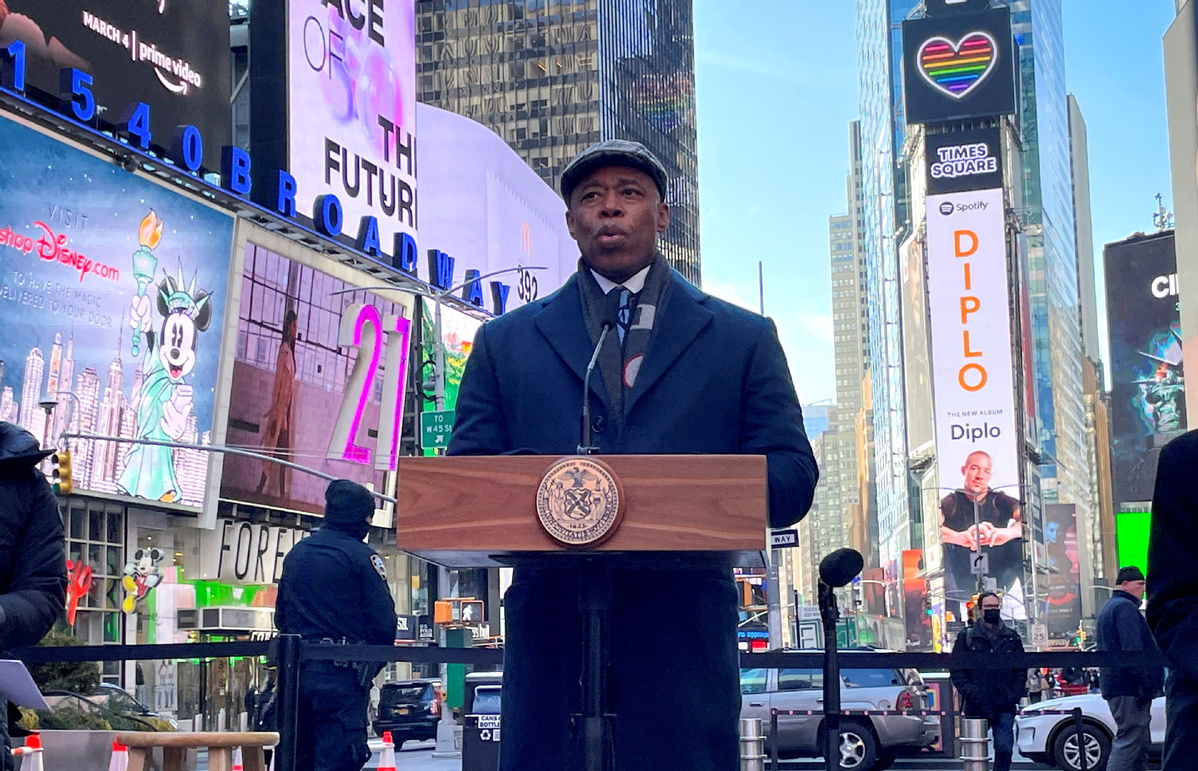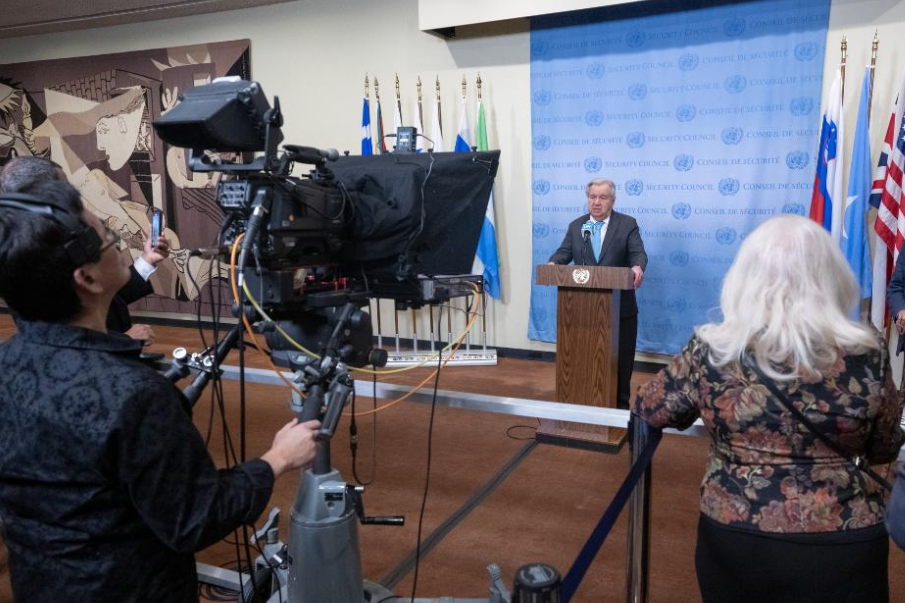NYC mayor says he's 'wartime general' fighting crime


New York City Mayor Eric Adams called himself a "wartime general" as he seeks to grapple with a spike in crime and homelessness that he says has made the city "the laughingstock" of the world.
"Anything goes in the city of New York," Adams said Sunday at an annual New York Police Department (NYPD) Communion Mass and breakfast at a Midtown hotel.
"The most important city on the globe has become the laughingstock of the globe. And the dysfunctionality of our city has cascaded throughout the entire country," he said.
Adams, a retired NYPD captain, called on the roughly 500 police officers in attendance at the function to reclaim the city's streets.
"There are wartime and peacetime generals. I'm a wartime general," he said. "I'm going to be on the front line. Those of you in transit, I'm in the subway system at 2, 3 am with you. I'm going to your precincts. I'm going to call you up when you make those arrests.
"I'm not sending you to the front line and leaving you there," he added. "I'm going to be at the front line with you. I'm going to lead you into battle."
To highlight the need to combat crime across the city, Adams uploaded a video to social media Sunday night showing two masked people robbing a woman who was with her 3-year-old child.
One of the suspects forces the mother against a wall with the child next to her. Another suspect appears to say something to the woman as he holds his hands over her mouth.
Adams's push to tackle crime comes as the NYPD's February crime statistics showed overall crime in New York City saw an almost 60 percent increase in felonies compared with the same time last year.
Crime increased in the subway system by 73.3 percent compared with February 2021, going from 105 incidents to 182.
Car theft jumped 104.7 percent, from 2,099 to 3,762; robberies increased by 56 percent, from 818 to 1,276; and theft increased by 79.2 percent, according to the data.
Hate crimes jumped 189 percent compared with February of last year, police said.
During Sunday's speech, Adams also cited two separate Brooklyn shootings from last week that left children ages 7 and 3 injured.
He likened the city's crime status to a high school science experiment in which a frog was put into water, boiled and left in the water until it died.
"Let's acknowledge that the heat is being turned up," he said. "We want to turn it down, so we don't watch our city boil to death."
Adams blamed petty crime and homelessness as contributing factors to the widespread "dysfunction" as his administration said on Friday that the mayor has ordered that every homeless encampment in the city be taken down within two weeks.
"We're going to rid the encampments off our street and we're going to place people in healthy living conditions with wraparound services," he said in an interview with The New York Times. When asked about a timeline for his plan, Adams said, "I'm looking to do it within a two weeks' period."
He didn't specify where the people now living in the encampments would go.
The most recent official estimate, in January 2021, put the number of people living in parks and on the streets at around 1,100, which was widely seen as an undercount, the Times reported.
The issue of homelessness in New York City has been the ground zero amid the crime spike in the city and a series of high-profile violent attacks. Homeless people have flooded city subway stations and streets in recent months.
Earlier this month, officials of the Metropolitan Transportation Authority (MTA), which operates the city's public transit system, said homeless outreach workers had found 29 homeless encampments in subway tunnels and 89 more in stations.
Homeless advocates say sweeping the subway system or clearing the streets does little other than move people from one subway station to another or some other public place.
Craig Hughes, a social worker at the Urban Justice Center, told the Times that such efforts were an escalation of a longstanding city approach that "has always been an effort to hide homelessness rather than to get people housed" and that invariably "leaves people more precarious than they were beforehand".

































